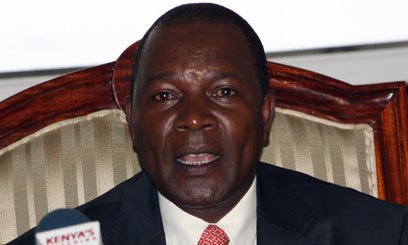Ndung’u was taken to task by nominated Member of Parliament Rachel Shebesh to name commercial banks that had been involved in malpractices that caused the value of the shilling to depreciate against major foreign currencies.
“Did you allow inflation to go unchecked when you could have done something about it? Are you now starting to work on a mechanism to rectifying the problem when you could have done it a year ago?” Shebesh asked the CBK Governor.
Ndung’u maintained that the Central Bank did everything within its power to manage the economy.
“When we saw how volatile it was, we reduced the exposure from 20 percent to 10 percent and no bank has flouted those rules. If they do, then it results in regulatory action and this is what we are trying to explain to you,” he said.
The top banker added that the drought situation that has rocked the country as well as the price increase in sugar contributed towards the rising cost of inflation.
“Food inflation stood at 26.2 percent while fuel inflation stood at 15.8 percent with non-food non-fuel inflation at 9.75 percent. The combination of inflation and weakening exchange rate is a threat to economic recovery: Hence the need for a coordinated response,” he added.
The country has been importing more goods than it exports which results in a deficit for the country’s GDP.
In a report tabled before the committee, the CBK stated that given the instability in the European region, short term financial derivatives were prevalent, thus increasing the velocity of foreign exchange trading and exerting pressure on the demand for the US dollar.
The report further gives the following measures to maintain the current direction the economy and foreign exchange market is taking;
– Build up foreign exchange reserves to a stronger position that will provide an adequate buffer.
– Regular interactions with market players to be sustained to enhance the effectiveness of the transmission mechanism of the monetary policy and policy actions.
-And continued regional coordination in policy actions and responses among the Central Banks within the East African Community.
The committee will conclude its seatings on December 15.




































